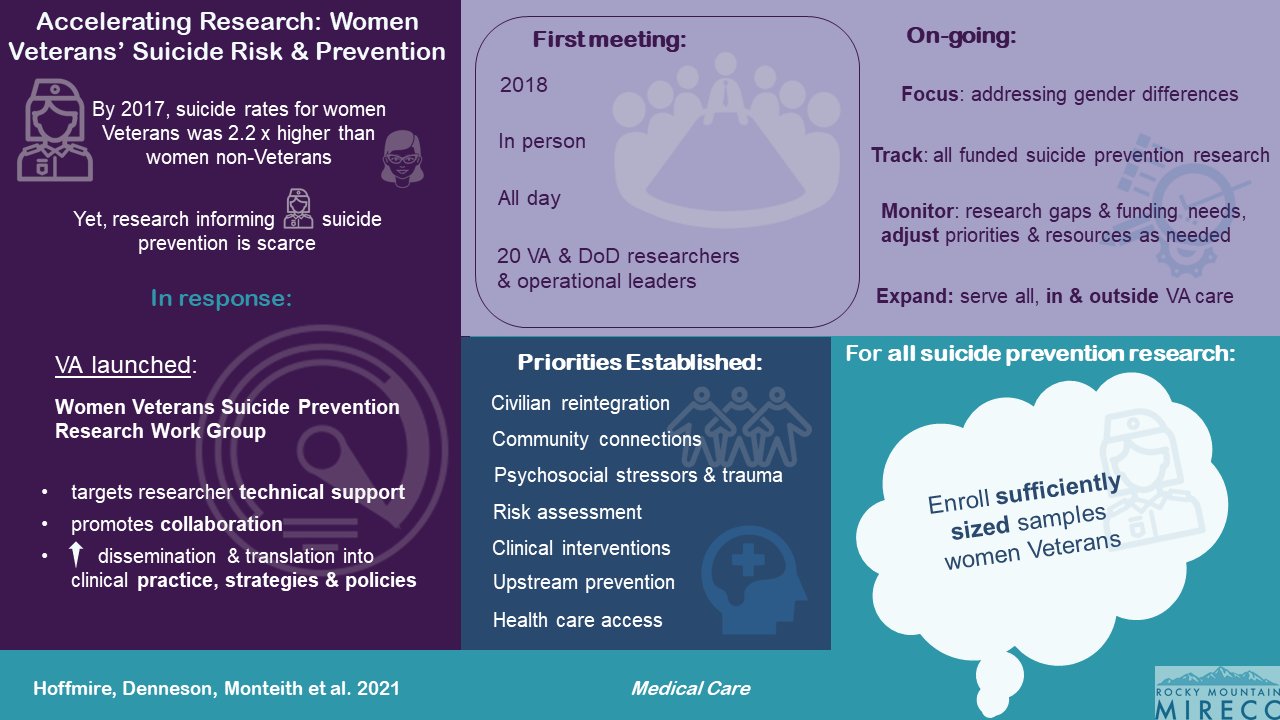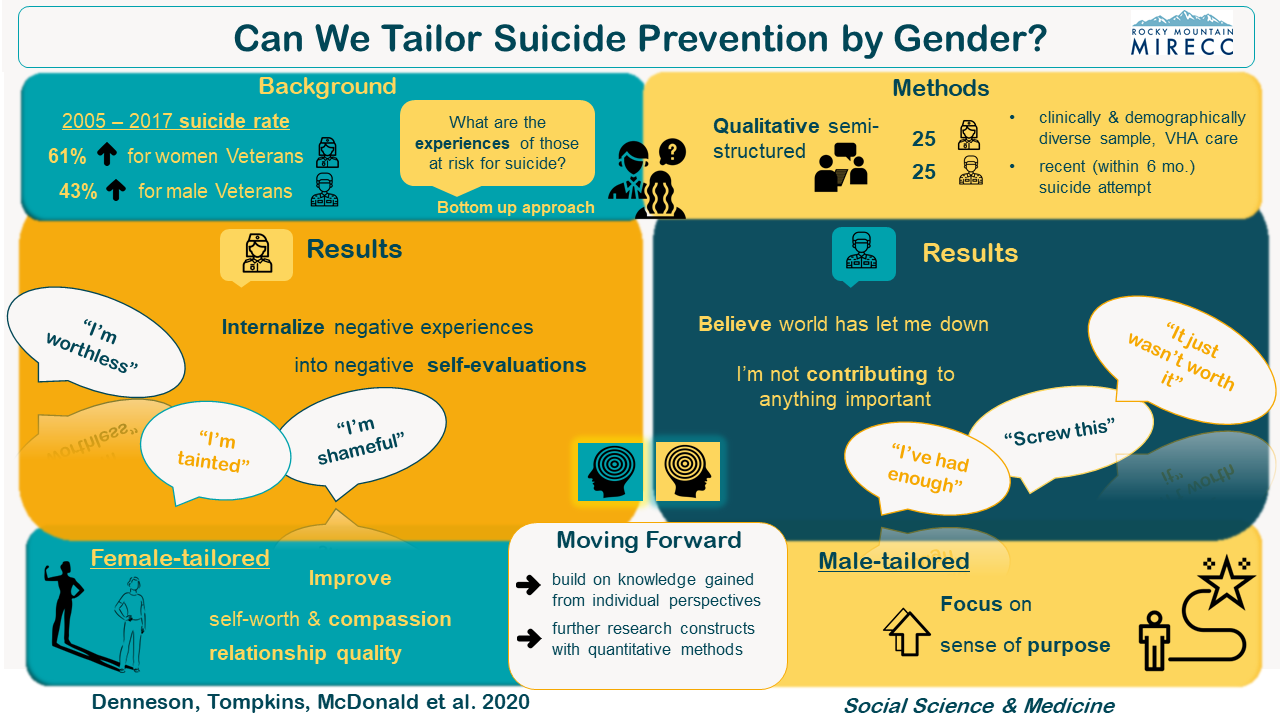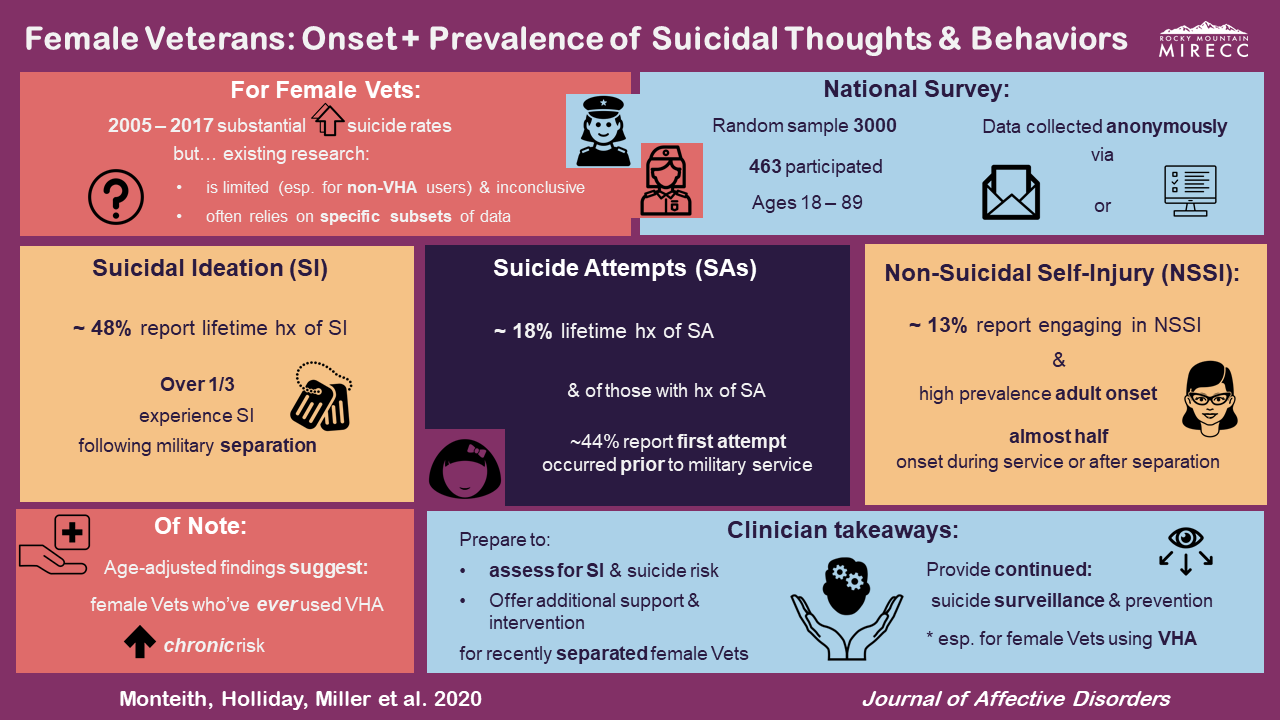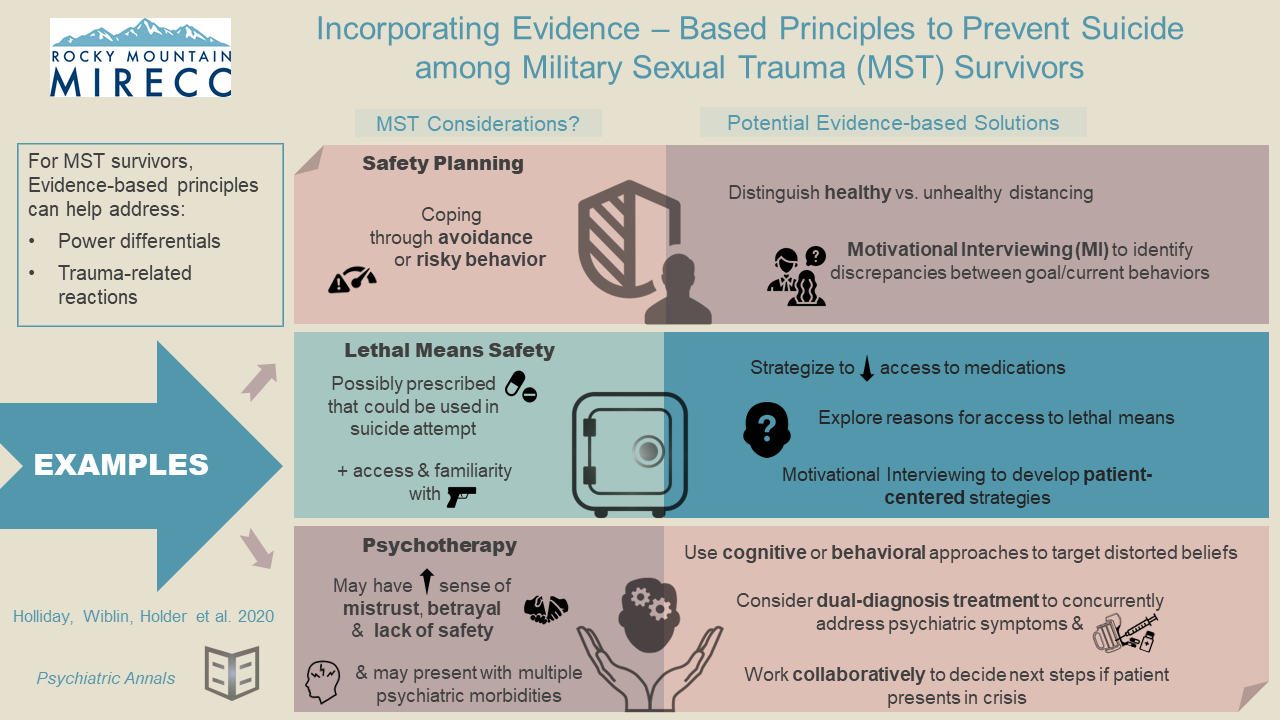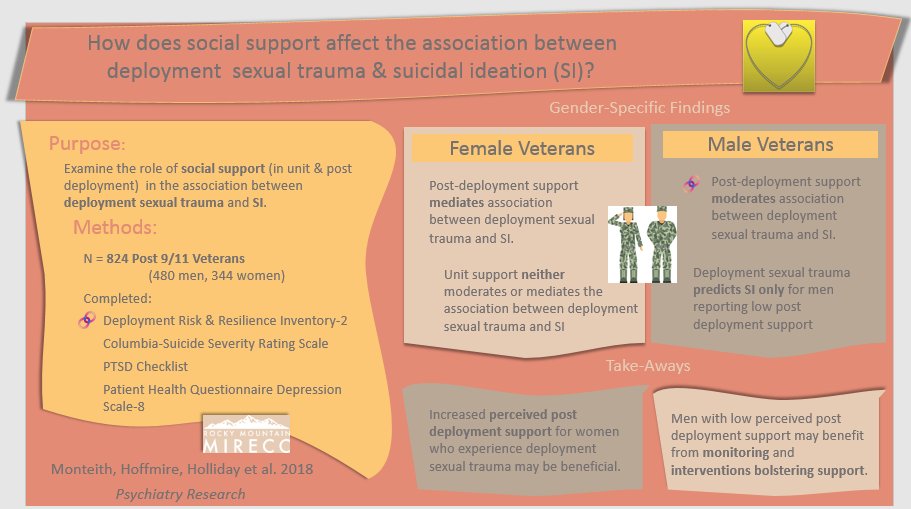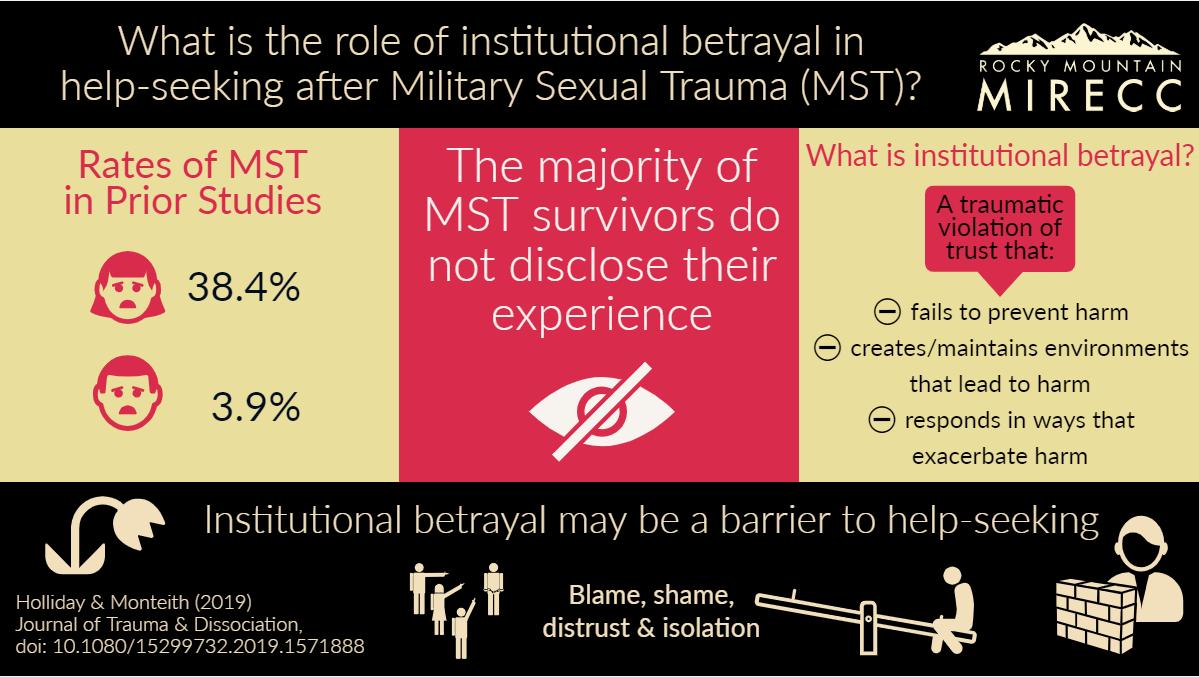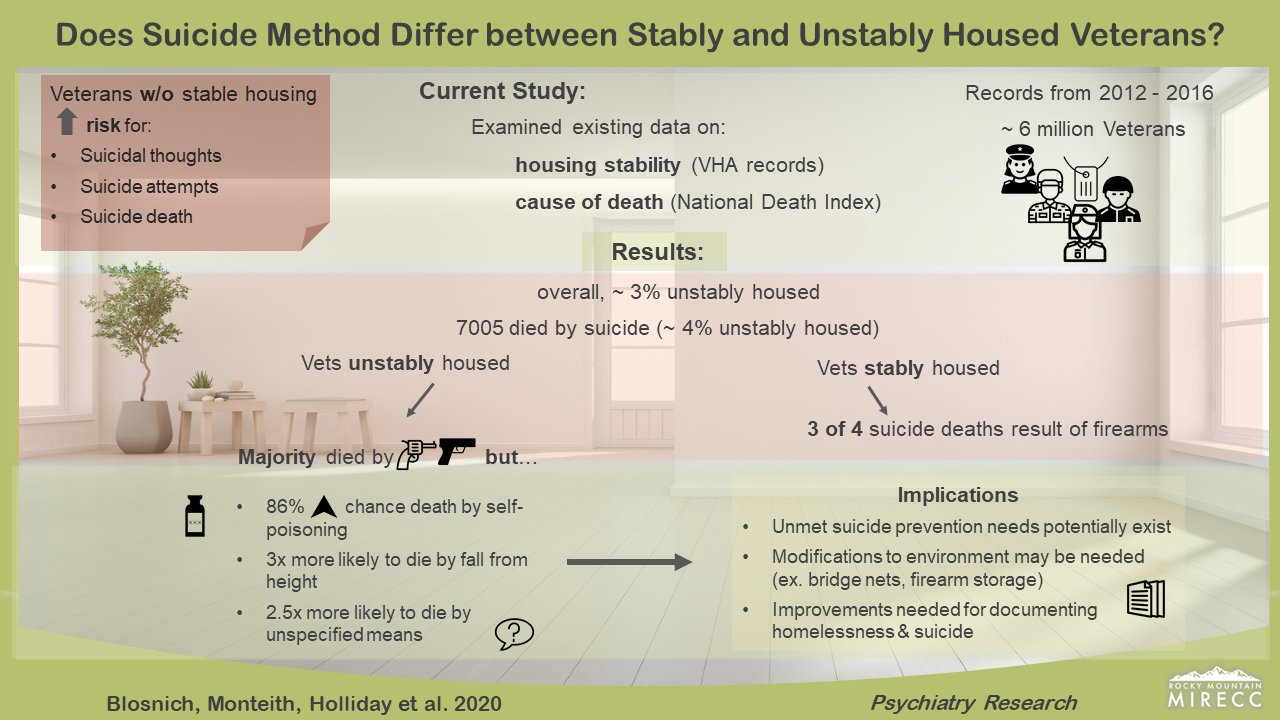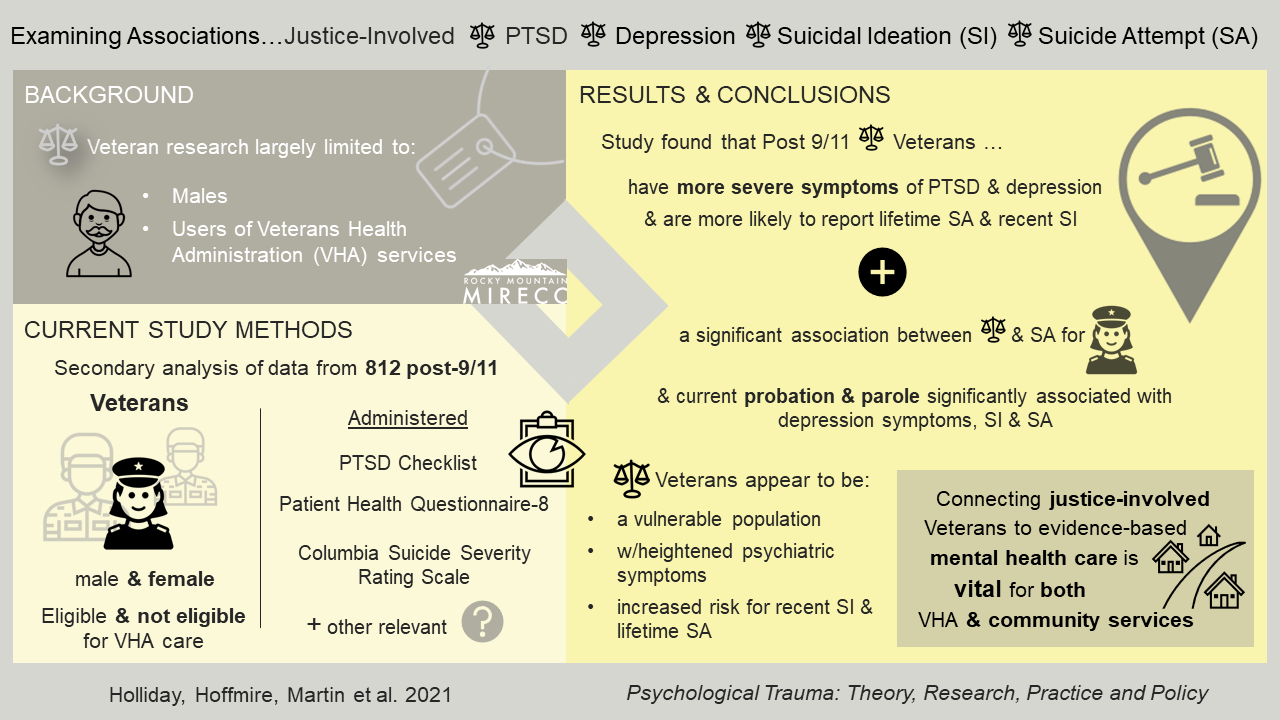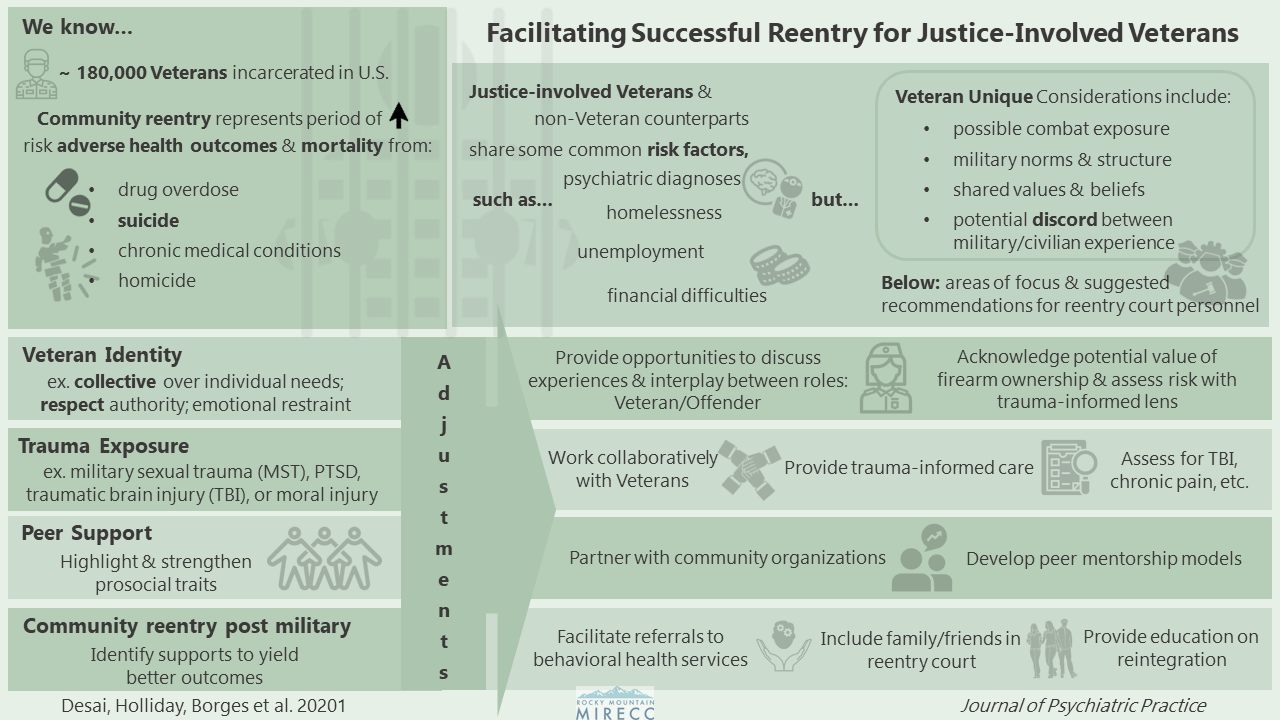MIRECC / CoE
Rocky Mountain MIRECC for Veteran Suicide Prevention - ASPIRE Research
 |
|||
 |
 |
 |
 |

ASPIRE Lab Research Studies & Findings
Drs. Hoffmire, Holliday and Monteith lead the Advancing Suicide PreventIon for undeRserved vEterans (ASPIRE) lab. We conduct research that aims to understand how suicide risk differs across diverse Veteran populations, to identify suicide risk and protective factors in different Veteran populations, and to understand Veterans’ experiences and preferences for intervening upon suicide risk, in order to inform tailored prevention and treatment approaches.
Some of these populations include:
- Women
- Asian American
- Pacific Islander
- Not engaged in VA health care
- Survivors of interpersonal violence (e.g., military sexual trauma)
- Unstably housed
- Justice system involved
Below are examples of the work conducted by ASPIRE Lab in these areas.
Women Veterans
Accelerating Research for Women Veterans’ Suicide Risk and Prevention (2018-present)
Dr. Claire Hoffmire co-leads the Women's Health Research Network (WHRN) Women Veterans Suicide Prevention Workgroup, which was established in 2018. The goal of the workgroup is to support VA investigators in their work to understand the unique needs of women Veterans and how to best address them in future research, practice, strategies and policy. This work is in the Clinical Research and Clinical Implementation phases.
Click or tap the image to enlarge and learn more.
Tailoring Suicide Prevention by Gender (2018-present)
A collaboration study including MIRECC investigator, Dr. Claire Hoffmire, seeks to answer the question “Can We Tailor Suicide Prevention by Gender?” This study is in the Clinical Research phase.
Click or tap the image to enlarge and learn more.
Women Veterans and Firearm Lethal Means Safety (2020-2022)
Dr. Lindsey Monteith and her team finished recruiting participants for a qualitative study exploring the perspectives and experiences of women Veterans, their partners, and VHA mental health and primary care providers regarding firearm lethal means safety for suicide prevention. This study is in the Clinical Research and Clinical Implementation phases.
Firearm Access among Previously Deployed Women Veterans (2020)
Dr. Lindsey Monteith and her team completed a survey of previously deployed women Veterans to identify factors associated with firearm ownership and safe storage among women Veterans, as well as to better understand women Veterans’ perspectives on discussing firearms with health care providers. This study is in the Clinical Research phase.
Understanding Women Veterans’ Help-Seeking Experiences and Barriers (2018-2019)
Dr. Lindsey Monteith and her team completed a study in which they surveyed women Veterans using and not using VHA services, to understand factors that impact women Veterans’ willingness to seek help for mental health concerns and suicidal thoughts, as well as to understand factors that relate to women Veterans’ experiences of suicidal ideation and attempt. This study is in the Clinical Research phase. Examples of findings from this study include the following.
Click or tap the links below to learn more.
- Webinar: Suicidal Self Directed Violence Among Women Veterans
- Female Veterans’ Willingness to Seek Veterans Health Administration and Non–Veterans Health Administration Services for Suicidal Thoughts and Mental Health Concerns
- Institutional betrayal and help-seeking among women survivors of military sexual trauma
Upstream Suicide Prevention for Women Veterans within Reproductive Health Care Settings (2017)
Dr. Claire Hoffmire and her team conducted a one-year pilot study examining whether women Veterans using reproductive healthcare (RHC) services paid or provided by the VA feel that RHC settings may be suitable for suicide risk and suicide prevention. This study is in the Clinical Research phase.
Veterans Who Have Experienced Military Sexual Trauma (MST)
Studies and articles published by our lab have also sought to: understand the role of MST in Veterans’ risk for suicidal self-directed violence; identify factors associated with suicidal self-directed violence among survivors of MST; and understand how experiencing MST and its sequelae can impact treatment engagement. We have also published articles to help clinicians take a trauma-informed approach to suicide prevention when working with MST survivors. These studies on MST are in the Clinical Research, and Clinical Implementation phases.
An example is this publication: Interpersonal Violence Throughout the Lifespan.
These visual abstracts also highlight a few additional examples of ASPIRE Lab publications in this focus area.
Click or tap images to enlarge and learn more.
Dr. Monteith and Dr. Rebecca Blais were recently funded by the Department of Defense to conduct a research study aimed at understanding suicide risk and prevention among survivors of military sexual violence, including identification of critical risk periods, survivors’ lived experiences, and how differences based on gender, sexual orientation, and active duty versus Veteran status.
Veterans not Using VHA Services
The VA seeks to prevent suicide among all Veterans, regardless of whether they are accessing VA services. Unfortunately, suicide risk among Veterans who are not using VHA services has increased substantially in recent years.
Mental Healthcare Experiences of Women and Men Veterans Using and Not Using VA Health Care
(2020-present)
Drs. Lindsey Monteith and Claire Hoffmire conducted a mixed-methods research study to learn about Veterans’ experiences and preferences for getting help for mental health concerns and suicidal thoughts. For this study, they surveyed and interviewed Veterans of all genders who are currently using VHA care, who have stopped using VHA care, and who have never used any VHA care. This study is in the Clinical Research phase.
Assessing Social & Community Environments with National Data (ASCEND) (2019-present)
The ASCEND study, led by Drs. Claire Hoffmire and Lindsey Monteith, also aims to examine the prevalence and correlates of suicidal self-directed violence among Veterans, including those not using VHA care. This study is in the Clinical Research phase. Learn more about this ongoing research study by visiting the study website.
Asian American and Pacific Islander Veterans
The ASPIRE lab is currently leading a project aimed at understanding suicide risk and prevention among Asian American and Pacific Islander Veterans. Learn more about this ongoing research study by visiting the study website.
Veterans Experiencing or at Risk for Homelessness
Veterans who are homeless or at-risk for homelessness experience many health and psychosocial concerns, including increased risk for suicide. Dr. Ryan Holliday leads several projects aimed at understanding why these Veterans experience greater suicide risk and how to tailor evidence-based treatment to fit their needs.
Click the image and link to learn more.
Veterans Involved with the Criminal Justice System
Veterans involved in the criminal justice system are at an increased risk for suicide and other adverse health outcomes. Dr. Ryan Holliday and colleagues have researched the role of justice involvement in mental health symptoms, suicidal ideation and suicidal behavior. Dr. Holliday’s research has also focused on evaluation of treatments among justice-involved Veterans.
Click the images or link to learn more.
ASPIRE lab research is within the Clinical Research, Clinical Implementation, and Public Health phases. Visit the translational model page to learn more about these and other phases in the model.
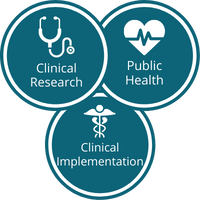
Last Updated 4 March 2025













